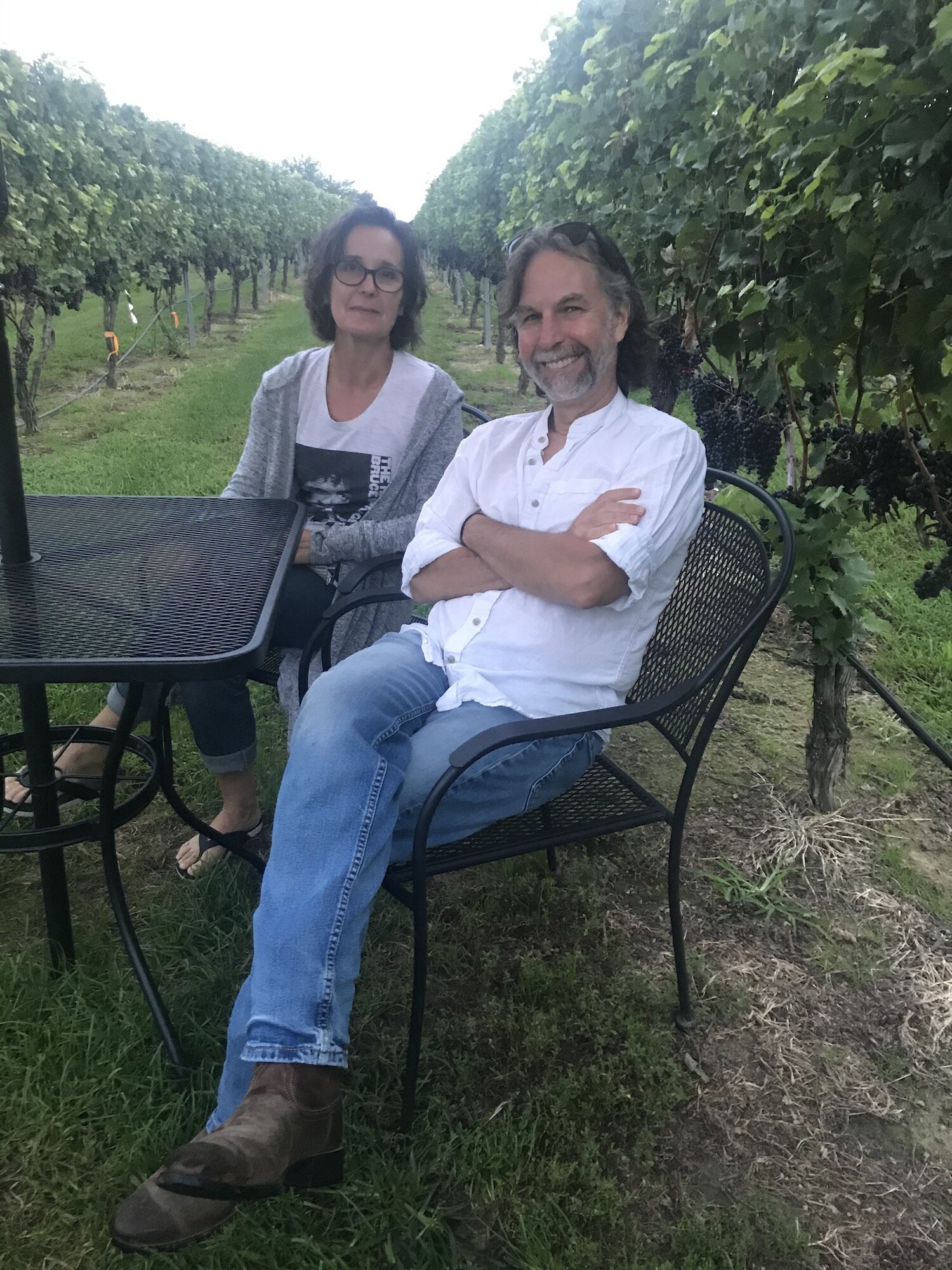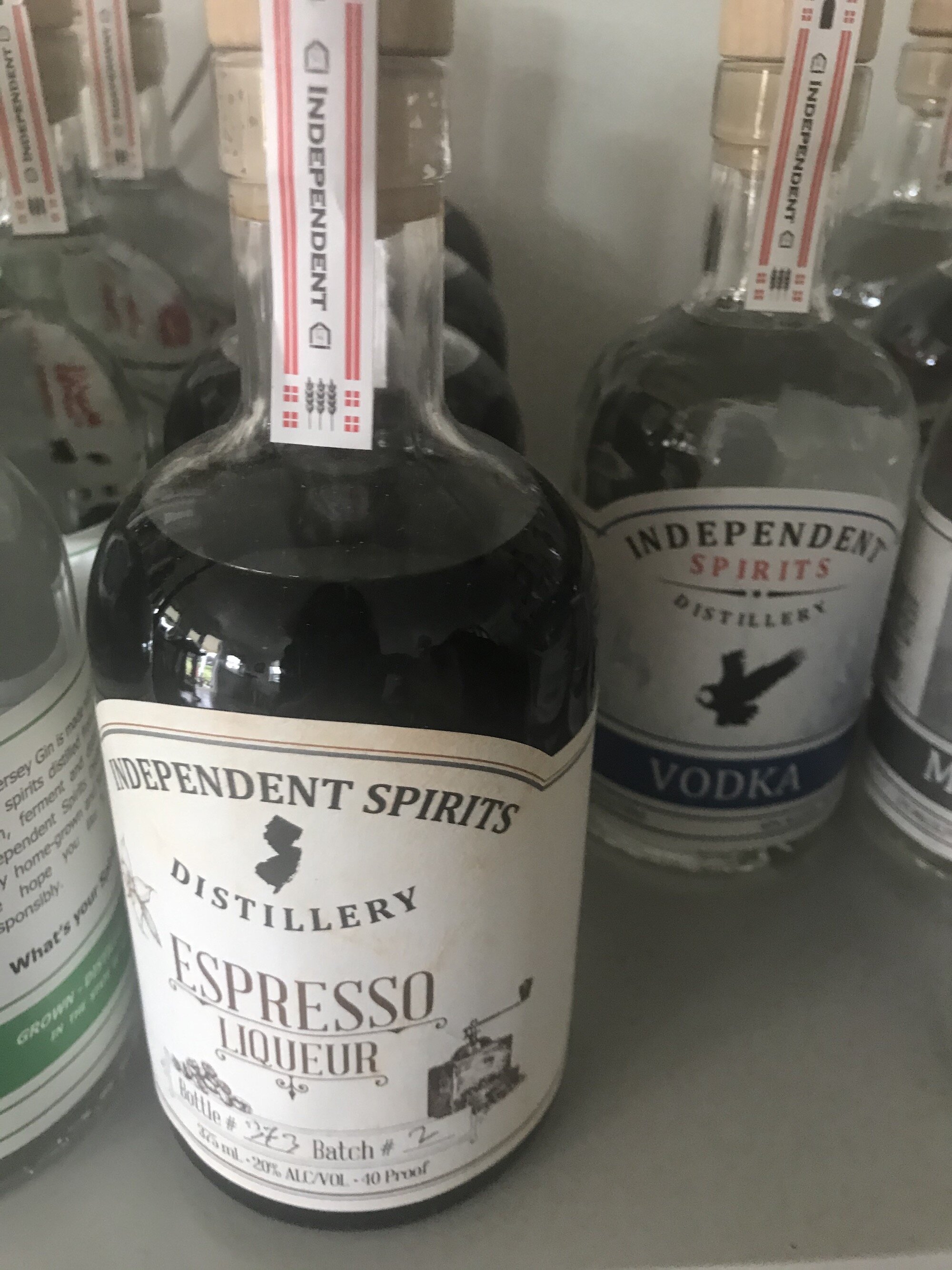6 Most Compelling Stops along South Jersey’s Two Bridges Wine, Beer & Spirits Trail
From Bruce Springsteen to “The Jersey Shore,” New Jersey is known for a lot of associations. Here’s another one -- it’s a wine-producing state. South Jersey, in particular, is an agricultural bedrock with a maritime climate making it suitable for grape growing and harvesting. Plus, this region is the location of the Two Bridges Wine, Beer & Spirits Trail.
Named for the Delaware Memorial and Commodore Barry bridges, which pass over the nearby Delaware River, this 60-mile trail primarily contains wineries but also has some breweries and distilleries. Their owners have different connections to their venues, from those who have farmed land for a long time to those who got involved through a life change or a shared passion.
Here are our picks for the must visit stops along the Two Bridges Wine, Beer & Spirits Trail.
Bellview Winery
This family-run winery, owned by the Quarella family, grows 20 European and American varietals involving viniferous, natives and hybrids and including Cayuga and Blaufränkisch on 50 acres of vineyards. With the property in the possession of the Quarellas since 1914, their Bellview farm went from growing and harvesting vegetables to winemaking by the fall of 2002.
This shift would be planted by patriarch and fourth-generation farmer Jim Quarella, who started experimenting with winemaking as a teen. Later on, as a husband and father of three sons, he set aside three acres of farmland for grapes in 1999. The Quarellas had their first commercial planting in 2000 and opened an onsite tasting room a year later. In 2007, Jim helped to establish an AVA in Southeastern New Jersey called the Outer Coastal Plain, which the Bellview Winery belongs to. With a full list of wines encompassing dry, sweet, and fruity offerings, the winery is also noted for its weekly revolving flight list.
William Heritage Winery
William Heritage wines
Originally, Bill and Penni Heritage harvested peaches and apples at their multi-generational produce farm in Mullica Hill before looking at planting grapes to sell to wineries for extra revenue in 1999. After developing a half-acre each to Chardonnay and Cabernet Franc, the Heritages changed plans and attempted to make wine themselves in 2001. They applied for an ABC license, turned to a winemaking friend for guidance, and later on put out their first bottles of Chardonnay.
Today, the Heritage family focuses on winemaking, converting their 150-acre estate from orchards to vineyards. Some peach and apple trees remain, with the fruit from the latter going toward making cider that’s also available for purchase. The inventory at William Heritage Winery encompasses reds, whites, and a New Jersey line of fruit profile wines, among other releases. The winery has two tasting rooms, one at the farm that coincides with a retail store, and the other in Haddonfield. Also at their farm, their production facility features stainless steel temperature control fermentation tanks and an automated bottling line.
Cedar Rose Vineyards
Childhood friends Dustin Tarpine and Steven Becker developed a passion for winemaking while in college (Tarpine at Clemson and Steven at Franklin-Marshall) through summer jobs and internships. Before graduating in 2011, the two spent a summer clearing a portion of wooded land and planting vinifera grapevines. Since then, Tarpine and Becker have gone to establish Cedar Rose Vineyards, a now 22-acre vineyard and winery, plus an onsite tasting room and bottling facility. Their original piece of land is still down the road from their Millville location. When the business opened in 2018, the two of them handled a mix of everything. Now Tarpine oversees wine production, while Becker manages the vineyard.
Their focus is on dry, Jersey, estate-grown wines, with a few select semi-sweets, and they make mostly estate wine, but also source some additional grapes within New Jersey. Their inventory ranges from their 2017 first estate grown Cabernet Sauvignon to their 2016 Blaufränkisch. Along with Cedar Rose Vineyards, the two also run VineTech Vineyard Management Solutions, a consulting business that handles viticulture responsibilities, from pruning to harvesting, for other southern New Jersey wineries.
Auburn Road Vineyard & Winery
Once practicing attorneys in Philadelphia, Julianne and Scott Donnini decided to switch from legal careers to farm living while enjoying a bottle of wine. It also led them to pursue winemaking. The couple purchased farmland in Pilesgrove, where they planted their first vines in 2003. Their property now has grown to 23 acres of grapes divided up into two lots, 10 at the pasture and the other 13 are a mile north. Julianne is their self-taught winemaker and runs the back of the house, while Scott focuses on the business side of things.
Auburn Road’s wine selection includes their Dry Rosé, a Provencal style with citrusy fragrance notes; Good Karma, a light and dry blend of Merlot and Pinot Noir; and Blanc NU, a white wine made from Chardonnay grapes that is fermented and aged in stainless steel tanks. Their bottle art is created by their friend, spirit guide, and artist in residence, Carolyn Mortimer. Each wine also has a corresponding playlist found on Auburn Road’s website, listing songs for listening to while serving it.
Auburn Road also has an Enoteca Wine Bar, serving wine, cheeses, coffees, and gelato and Ravello Woodfire Pizza, where their Neapolitan pizzas are made to order on weekends. Live music and performances also take place there.
Core3Brewery
Inside a former gas station turned taproom and microbrewery in Clayton, Alexi Skriapas and Larry Price turned their garage brewing hobby into a business. While balancing their day jobs -- Skriapas in construction, Price in the film industry -- they opened Core3Brewery in August 2019. The brewery’s name is based on a nickname that Skriapas, Price and another friend were known by collectively. Skriapas started brewing first in 2002, a decade later, Price joined in.
Along with having an on-staff brewer, Skriapas and Price still experiment in developing craft small batch beers. Their finished products can be tasted not too far, as their brewing equipment is in a side room across from the bar. Selections can extend to “Nevermore,” a black saison; “The Road to Fislers Mill,” a cream ale; “The March of Flames,” a red ale; and “Ode to Pierre,” a witbier.
The taproom’s rustic interior also showcases these two men’s DIY skills. Along with having wooden tap handles, their bar is sourced from materials from a Philadelphia train stop dating back to the Civil War. On the bar’s back wall, there’s a tree sculpture built by Skriapas from wood pieces from worksites.
Independent Spirits Distillery
This grain-to-glass distillery in Woolwich Township sits on a 10-acre farm with a production facility and tasting room. Owned by distiller Kerry Breen, Independent Spirits Distillery uses New Jersey grown grain and crops in crafting artisan spirits. Before opening the distillery in 2018, Breen was looking for something to do after her children had grown and tried out many different options. In 2013, when New Jersey Gov. Chris Christie signed legislation permitting artisan distilleries to open, her husband at the time suggested to her about starting one. At first, Breen dismissed the idea but of running a distillery, but it kept lingering on her mind. Her prior experience in this area was in making Irish crème with her family at Christmas time. But Breen attended a workshop at KOVAL Distillery in Chicago. Encouraged by the staff, she decided to give distilling a try.
Breen’s children helped when she first got started and she purchased a German Mueller still and learned about distilling by doing. A barn was constructed onsite for holding equipment. Breen has gone on to establish a line of hand-crafted spirits, including a botanical-infused aquavit, an espresso liquor, a rye whiskey, vodka, a barreled gin and bourbon. Her moonshine is made with South Jersey sweet corn and an espresso liquor is developed with coffee beans from a coffee shop. The distillery is open on weekends for tastings and for private events by appointment.
Have you taken the Two Bridges Trail? Share your favorite spots in the comments.






